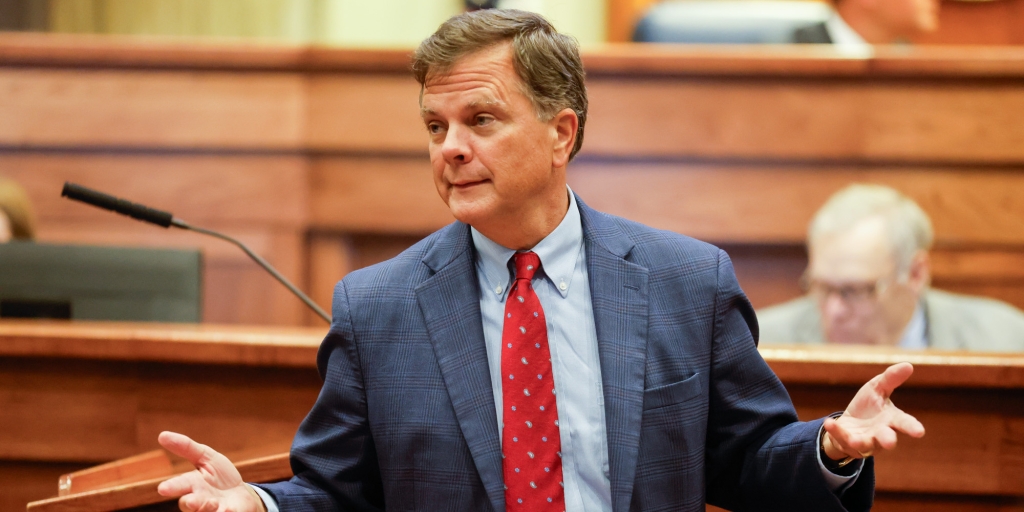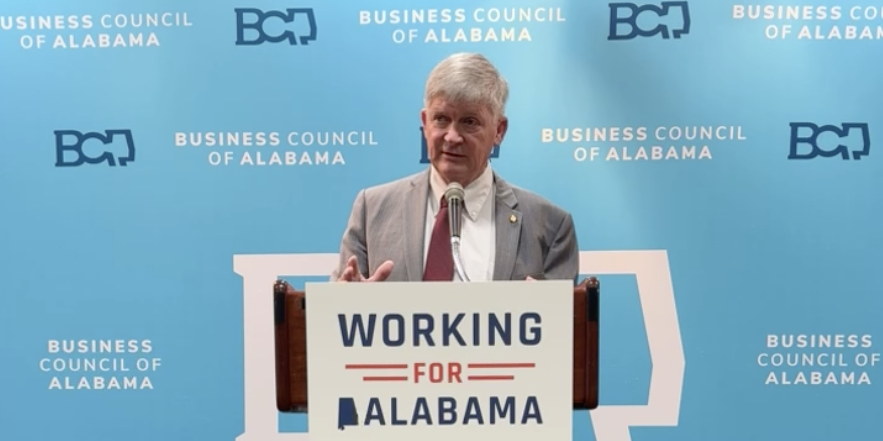
Gov. Robert Bentley says Alabama’s state government needs more revenue to sustain its current operations and to deal with increasing costs.
“It’s going to require more revenue,” Bentley told the Associated Press. “Is everyone going to be happy? No, they’re not.”
That may be an understatement. Alabama has a well-earned reputation for being of the most anti-tax states in the country. Perhaps most notably, just over a decade ago 68 percent of Alabama voters rejected a $1.2 billion tax hike known as Amendment 1 that was being pushed by Bentley’s Republican predecessor Bob Riley.
And it’s hard not to note the parallels between the current budgeting predicament and the situation in which Riley found himself in 2003.
According to the Center for Individual Freedom, Riley inherited a budget shortfall of $675 million — a dire prognosis by any measure. But according to Bentley, Alabama’s current budgeting woes may be even worse.
“If you did things right, it would be $700 million,” Bentley said of the current General Fund Budget shortfall.
He gets to that number by adding the $125 million owed to the federal government for Medicaid; $140 million for cost increases in Alabama’s beleaguered prison system and Medicaid; $160 million owed to the state’s rainy day fund; and a few hundred million that is still owed to various other places from which the state government borrowed to prop itself up.
“I’ve made a promise that taxes would be my last resort on issues,” Bentley told the AP, and he was even more explicit during his re-election campaign. The phrase “No New Taxes” was featured prominently in most of his campaign advertising.
Bentley has rejected incessant calls for him to go back on his promise not to expand Medicaid, so it’s hard to imagine him wilting under the pressure and breaking his no new tax pledge.
So what options does that leave on the table?
Expanding gambling in the state has been one of the most frequently discussed options in recent months, but Bentley downplays its viability as a significant source of revenue.
“The way we’ve been looking at it, we’re really not going to get that much money out of a compact,” Bentley said in reference to a so called “gambling compact” the state could enter into with the Poarch Creek Indians, who operate gaming facilities on tribal lands. “We’re really not going to get that much money out of a lottery for a small state like Alabama… The two of them together might add up to $200 million.”
Readdressing current tax deductions is another option being discussed, but it would be very difficult for the governor to argue that eliminating deductions somehow does not constitute a tax hike.
“We’re one of the only states in the country that allows FICA to be deducted off of your state income tax,” Bentley said by way of example. “We’re one of the only states in the country that allows the full deduction of your federal income tax off of your state income tax.”
Alabama is also one of only three states in the country that operates out of two separate budgets — the Education Trust Fund (ETF), which obviously funds the state’s education system, and the General Fund (GF) that funds everything else. As a result of the control the Alabama Education Association (AEA) had over Alabama’s state government for decades, the vast majority of the growth taxes are funneled into the ETF, often leaving the GF incapable of meeting its responsibilities.
Some lawmakers have expressed their belief that combining the two budgets is the longterm solution that makes the most sense, but they concede that it may not be politically palatable at this point.
In an effort to patch the General Fund shortfall in previous years, line items that have traditionally appeared in the GF were moved into the ETF. Republican legislative leaders have discussed the possibility of moving some of the growth taxes from the Education Budget into the General Fund in return for moving those items back to their traditional side of the budgets, but those discussions are only tentative at this point and will be ongoing for the next several months ahead of the 2015 legislative session.
Making matters worse, 88 percent of Alabama’s tax revenue is earmarked. That’s by far the highest percentage of any state in the country, and it leaves very little flexibility for lawmakers to increase government efficiency or to move money around to patch holes.
But even with those challenges, the governor and Republican legislative leaders partnered over the past four years to cut over $ 1 billion per year in spending. Senate President Pro Tem Del Marsh (R-Anniston) has frequently referred to the effort as “right-sizing” state government.
With campaign promises having taken new taxes off the table and very few legitimate options available to increase revenue, economic growth and government “right-sizing” will need to continue if Alabama hopes to fulfill its obligations.
Follow Cliff on Twitter @Cliff_Sims












